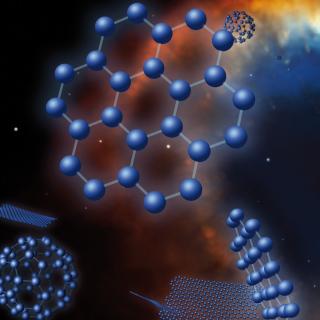Bibcode
Cox, N. L. J.; García-Hernández, D. A.; García-Lario, P.; Manchado, A.
Bibliographical reference
The Astronomical Journal, Volume 141, Issue 4, article id. 111 (2011).
Advertised on:
4
2011
Citations
16
Refereed citations
14
Description
By tracing the distribution of cool dust in the extended envelopes of
post-asymptotic giant branch stars and (proto)-planetary nebulae
((P)PNe), we aim to recover, or constrain, the mass-loss history
experienced by these stars in their recent past. The Far-Infrared
Surveyor (FIS) instrument on board the AKARI satellite was used to
obtain far-infrared maps for a selected sample of post-AGB stars and
(P)PNe. We derived flux densities (aperture photometry) for 13 post-AGB
stars and (P)PNe at four far-infrared wavelengths (65, 90, 140, and 160
μm). Radial (azimuthally averaged) profiles are used to investigate
the presence of extended emission from cool dust. No (detached) extended
emission is detected for any target in our sample at levels significant
with respect to background and cirrus emission. Only IRAS 21046+4739
reveals tentative excess emission between 30'' and 130''. Estimates of
the total dust and gas mass from the obtained maps indicate that the
envelope masses of these stars should be large in order to be detected
with the AKARI FIS. Imaging with higher sensitivity and higher spatial
resolution is needed to detect and resolve, if present, any cool compact
or extended emission associated with these evolved stars.
Related projects

Nucleosynthesis and molecular processes in the late stages of Stellar Evolution
Low- to intermediate-mass (M < 8 solar masses, Ms) stars represent the majority of stars in the Cosmos. They finish their lives on the Asymptotic Giant Branch (AGB) - just before they form planetary nebulae (PNe) - where they experience complex nucleosynthetic and molecular processes. AGB stars are important contributors to the enrichment of the
Domingo Aníbal
García Hernández